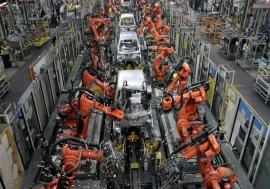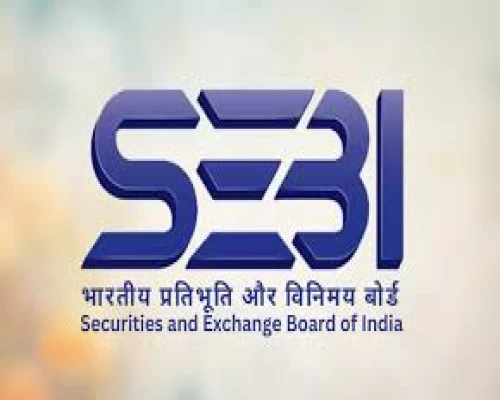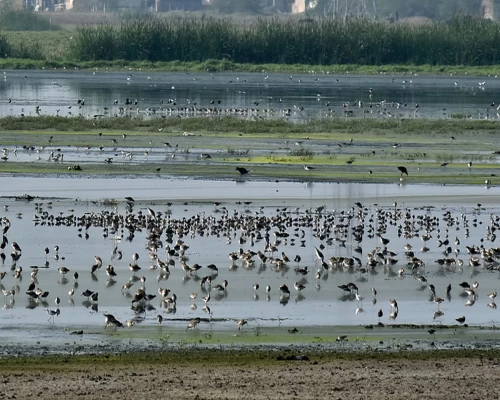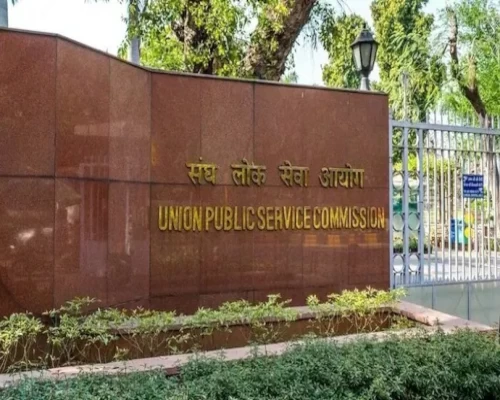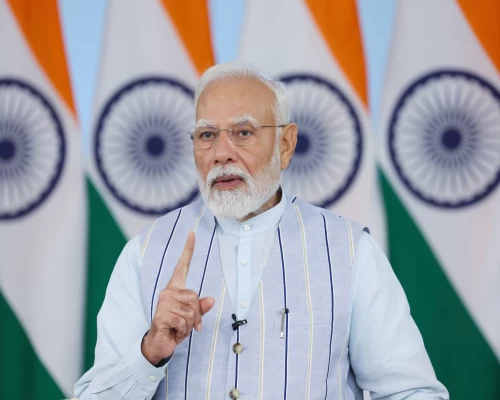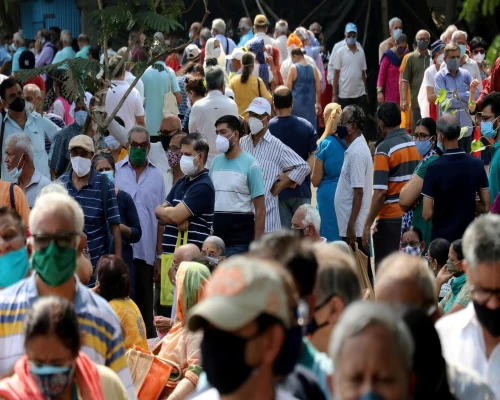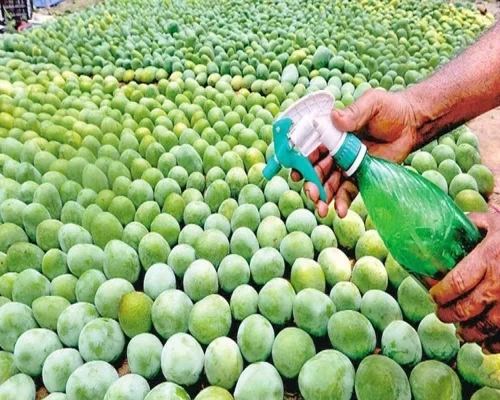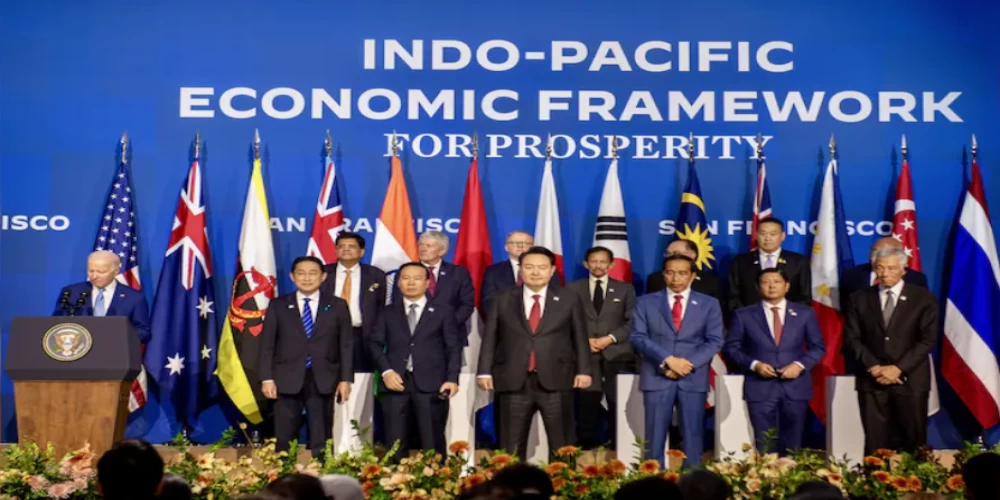
New Delhi: In a significant milestone, India and 13 other Indo-Pacific Economic Framework (IPEF) partners have established three supply chain bodies under the landmark Indo-Pacific Economic Framework for Prosperity (IPEF) Agreement relating to supply chain resilience. The inaugural virtual meetings of the Supply Chain Council (SCC), Crisis Response Network (CRN), and Labor Rights Advisory Board (LRAB) marked a major step forward for cooperation among partner countries for strengthening supply chain resilience in the region.
Through these inaugural meetings, 14 IPEF partners reaffirmed their commitments and collective resolve to facilitate closer cooperation to strengthen the resilience and competitiveness of critical supply chains and better prepare for and respond to supply chain disruptions that pose a risk to economic prosperity while strengthening labour rights.
The first-of-its-kind IPEF Supply Chain Resilience Agreement was signed by the Union Minister of Commerce and Industry, Piyush Goyal, along with the Ministers from other IPEF partner countries in November 2023 in Washington D.C., with the objective of making IPEF supply chains more resilient, robust, and well-integrated, contributing towards the economic development and progress of the Indo-Pacific region as a whole. The agreement was ratified in February 2024 and has been in force since then. On an earlier occasion, Minister Goyal highlighted India’s global production capacities in many critical sectors, which provide supply diversification opportunities for IPEF partners.
Earlier in June 2024, the Secretary of the Department of Commerce, Sunil Barthwal, at the IPEF Ministerial meeting held in Singapore, highlighted that India, with its skilled manpower, natural resources, and policy support, aims to become a major player in the global supply chain. Government initiatives are proactive in finding solutions and ensuring India’s participation in diverse and predictable supply chains.
Pursuant to the Supply Chain Agreement, the IPEF partners established three supply chain bodies: a Supply Chain Council to pursue targeted, action-oriented work to strengthen the supply chains for those sectors and goods most critical to national security, public health, and economic well-being; a Crisis Response Network to provide a forum for a collective emergency response to exigent or imminent disruptions; and a Labour Rights Advisory Board that brings together workers, employers, and governments to strengthen labour rights and workforce development across regional supply chains.
India shared its views on the importance of a resilient supply chain network and the ongoing consultations with stakeholders on sectors that are critical to it from the perspective of national security, public health, and economic well-being. India also emphasised the need for collaboration in the skill development sector. It was stressed that identifying gaps and ensuring the right skills across our economies will be a priority, including technical assistance for workforce development and digitalisation for a resilient supply chain ecosystem.
During the meetings, each of the three supply chain bodies elected a Chair and Vice-Chair, who will serve for a term of two years. The elected chairs and vice-chairs are:
Supply Chain Council: USA (Chair) and India (Vice-Chair)
Crisis Response Network: Republic of Korea (Chair) and Japan (Vice-Chair)
Labour Rights Advisory Board: USA (Chair) and Fiji (Vice-Chair)
The Supply Chain Council adopted Terms of Reference and discussed initial work priorities, to be further explored at its first in-person meeting to be held in Washington, D.C., in September 2024 on the margins of the Supply Chain Summit. The Crisis Response Network discussed near and longer-term priorities, including conducting a tabletop exercise, and planned its first in-person meeting to be held alongside the Supply Chain Summit. The Labour Rights Advisory Board discussed priorities on strengthening labour rights across IPEF supply chains. The convening will not only advance the work of the Labour Rights Advisory Board but also focus on the labour provisions in the IPEF Clean Economy Agreement and Fair Economy Agreement.
The IPEF partners also underscored the significance of the upcoming in-person meeting to be held in Washington, D.C., in September 2024 on the margins of the Supply Chain Summit.
About IPEF: IPEF was launched on 23 May 2022 in Tokyo, Japan, comprising 14 countries: Australia, Brunei, Fiji, India, Indonesia, Japan, Republic of Korea, Malaysia, New Zealand, Philippines, Singapore, Thailand, Vietnam, and USA. The IPEF seeks to strengthen economic engagement and cooperation among partner countries with the goal of advancing growth, economic stability, and prosperity in the region. The framework is structured around four pillars relating to Trade (Pillar I); Supply Chain Resilience (Pillar II); Clean Economy (Pillar III); and Fair Economy (Pillar IV). India has joined Pillars II to IV of IPEF while it has maintained an observer status in Pillar I. /BI


